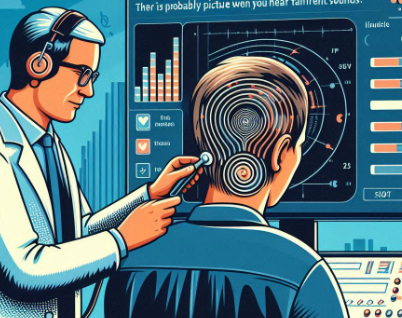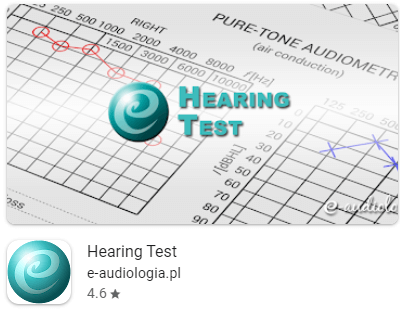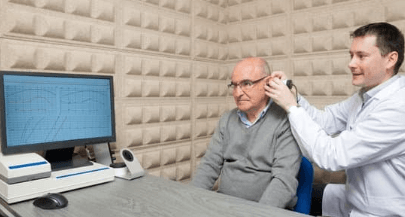Hearing tests are essential because they can seriously improve the quality of your life. Imagine not being able to hear your favorite song or missing out on important conversations with your friends and family. That’s why keeping your hearing in check is super important.
So, who should get a hearing test?
If you find yourself frequently asking people to repeat themselves, often turning up the volume on devices, or having trouble understanding conversations in noisy places, it might be time to get your hearing checked.
There are also long-term benefits. Identifying and addressing hearing issues early on can help prevent further damage. Plus, getting a hearing test can open the door to treatments that can dramatically improve your overall well-being. Life is much more enjoyable when you can hear what’s happening around you!
Hearing tests aren’t just for older folks, either. Anyone can experience hearing loss, including teenagers. Loud music, earbuds, and noisy environments can all take a toll on your ears over time. Regular hearing tests can ensure that any potential issues are caught early.
A quick hearing test is a small step that can make a huge difference. It’s all about catching problems early and ensuring you get the help you need. It’s easy, and most of the time, it’s painless.
Trust me, your ears will thank you!
Different Types of Hearing Tests: Which One Is Best for You?
If you’re thinking about getting your hearing checked, you might wonder about the different types of hearing tests out there. No worries – I’ve got you covered with the scoop on the most common ones.
First up, there’s pure-tone testing. This is probably what you picture when you think of a hearing test. You’ll wear some headphones and indicate when you hear different sounds. This one measures your ability to hear varied pitches and volumes.

Speech testing is another type. Instead of just tones, you’ll be asked to repeat words or phrases. This helps determine how well you can understand speech, especially in noisy environments, which is super practical for real-life situations.
Tympanometry sounds fancy, but it’s straightforward. This test checks how well your middle ear is working by measuring the movement of your eardrum. It’s quick and can help spot infections or fluid build-up.
Bone conduction testing gets a bit more technical. A device is placed behind your ear that sends vibrations directly to your inner ear. This allows the audiologist to see how well your inner ear and brain are processing sounds.
Then there’s otoacoustic emissions (OAEs). This one measures sound waves produced in the inner ear. If these emissions aren’t detected, it might indicate hearing loss.
So, which test is best for you?
It depends on your symptoms and needs. Sometimes, a combination of these tests provides the most accurate picture. Your audiologist will guide you on which tests are necessary based on your situation.
Recommended Reading: Best Hearing Exercises To Improve Listening Skills
Exploring the Best Hearing Test Apps
In today’s digital world, there’s an app for almost everything, including hearing tests. These apps bring convenience to your fingertips, letting you check your hearing without leaving home.
First off, using an app can be a great way to see if you need a professional hearing test. It’s quick, easy, and usually free. Plus, it can be less intimidating than going to a clinic right away.
So, what are some of the top-rated hearing test apps?
“Hearing Test” is quite popular.

It offers a simple and effective way to test your hearing using your smartphone and earbuds. The app provides detailed results and even tracks your hearing over time.
Another good option is the “Sound Meter & Hearing Test” app, which combines a hearing test with a sound level meter to help you understand your hearing environment.
Using these apps is pretty straightforward.
Most of them require a quiet environment and good-quality headphones for accurate results. Follow the app’s instructions, and in no time, you’ll have a good idea of your hearing health. They often include charts and explanations to help you understand your results.
However, it’s important to remember that these apps aren’t a substitute for a professional hearing test. They can give you an indication, but they can’t diagnose hearing conditions. If an app suggests you might have hearing issues, it’s best to follow up with a professional.
For those who love convenience and tech, hearing test apps can be a fantastic first step in taking charge of your hearing health.
Just remember, they’re a tool to help you decide if you need further testing, not the final say on your hearing health.
>>Think You Might Need a Hearing Aid, Check Out What Some Folks Have To Say About These Aids<<
Finding the Best Hearing Test Providers
When it’s time to choose a hearing test provider, quality and trust matter. You want someone who listens to your concerns and provides accurate, professional care.
One key to finding a great provider is to look for those with solid qualifications.
An audiologist with good credentials and experience can make all the difference. Also, check if they have good reviews from patients who’ve had similar issues. This can give you confidence in their abilities.

Accessibility and convenience are also important. Make sure the clinic is easy to get to and offers appointment times that work for you. Some providers even offer telehealth options, which can be super convenient if you have a busy schedule.
Among the top hearing test providers, companies like Miracle-Ear and Beltone stand out.
They have extensive networks, experienced audiologists, and a reputation for good customer service. Local hospitals and ENT (Ear, Nose, Throat) specialists are also excellent choices.
Choosing the right provider isn’t just about location or reviews, though. It’s also about comfort and trust. You should feel at ease talking to your audiologist, asking questions, and discussing your concerns. Trust your gut feeling when making your decision.
Finally, know what to expect during your visit. Most appointments involve a detailed discussion of your history, various hearing tests, and an opportunity to discuss the results and next steps.
A good provider will ensure you understand everything clearly and feel supported throughout the process.
Hearing Tests for Autistic Children: Special Considerations
When it comes to hearing tests for autistic children, special considerations are crucial. These kids might experience heightened sensitivity to sound or find it challenging to communicate what’s happening around them.
The importance of hearing tests in autistic children can’t be overstated.
Regular testing helps ensure that any hearing issues are identified early, which in turn supports better communication and learning opportunities. Since autistic children often rely heavily on visual and auditory cues, ensuring their hearing is optimal can make a big difference.
Specialized providers with experience in pediatric audiology are usually the best choice. They understand the unique needs and can create a more comfortable environment for your child. The testing process might include visual aids, relaxed settings, and a more patient approach to make the child feel at ease.
For parents, preparing their child ahead of time can help. Explain what will happen using simple, calm language. If possible, visit the clinic beforehand to familiarize your child with the setting. Some clinics even offer virtual tours on their websites to help you with this.
It’s also helpful to know that there are specific tests that cater to the needs of autistic children.
Visual Reinforcement Audiometry (VRA) uses lights and animated toys to gauge responses to sounds, making the process more engaging. Conditioned Play Audiometry (CPA) turns hearing tests into a game, encouraging kids to respond to sounds through play activities.
Finding the right provider and preparation can make a significant difference. It’s all about creating a supportive, understanding environment where your child feels comfortable and safe.
Next Steps: Taking Action for Better Hearing Health
Once you’ve had your hearing tested, understanding your results is crucial. Your audiologist will explain what the results mean and whether you need any further treatment.
Don’t be afraid to ask questions if anything is unclear.
If your test indicates hearing loss, several treatment options are available. For mild issues, lifestyle changes like reducing noise exposure can help.
Hearing aids are a common solution for more significant hearing loss, and modern devices are more advanced and discreet than ever. In some cases, medical procedures might be recommended.
Protecting your hearing should be a priority in your daily life. Simple habits like lowering the volume on your headphones, wearing ear protection in noisy environments, and taking breaks from loud noises can make a big difference.
There are tons of resources available to help you on your hearing health journey. Support groups, online forums, and educational websites can provide valuable information and emotional support. Don’t hesitate to leverage these resources to stay informed and connected.
Taking care of your hearing is an ongoing process.
Regular check-ups and staying alert to any changes in your hearing are key. It’s all about maintaining that quality of life you deserve and enjoying all those sounds that make life rich and exciting.
Thanks for checking out my article on hearing tests.
Have you ever gone for a hearing test? Or are you scheduled to go for one?
Let’s chat below. Remember you are not alone on this journey.
Regards and Take Care
Roopesh
